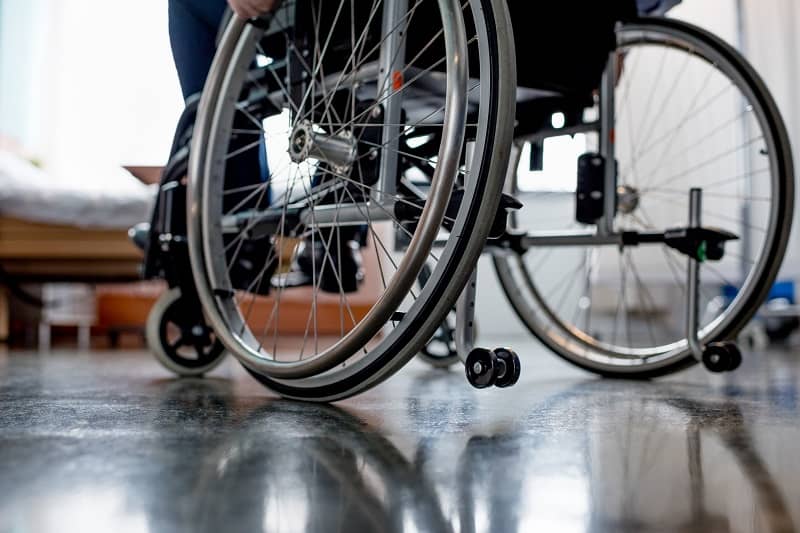Can You Get Disability for Lupus? Know the Details before applying!
Lupus is a chronic autoimmune disease that causes pain, inflammation, and swelling to the body. Inflammation occurs normally when your immune system is fighting an infection or injury, but with lupus the immune system attacks healthy tissues throughout many parts of the body.
Lupus causes swelling and inflammation of the joints, kidneys, skin, blood, lungs, and heart, but symptoms are not limited to these. This disease causes several different symptoms because of how it impacts multiple parts of the body.
Thankfully, there are Social Security Administration programs available for lupus disability benefits that provide financial and other support to those suffering from lupus and its related disabilities.
Discoid Lupus Erythematosus:
Discoid Lupus Erythematosus, or DLE, is a type of cutaneous lupus. DLE is a chronic skin condition resulting in rash, sores, and scaly, crusty skin of the face, ears, head, and other parts of the body. This type of lupus is chronic and incurable, but can go into remission with appropriate treatment.
Unlike other types of lupus, DLE does not typically target the internal organs; though a small number of people might develop a related disease of the internal organs. The cause of DLE is not yet medically understood, but there is a strong genetic correlation among family members and it is diagnosed in females three times more than males. Getting disability for lupus may be necessary if your condition contributes to other disorders and risk factors.
1. Systemic Lupus Erythematosus:
Systemic Lupus Erythematosus, or SLE, is the most common type of lupus disease. SLE attacks the tissues throughout the body, causing inflammation of multiple organs. This condition can cause significant damage to several parts of the body and internal organs, including blood clots, anemia, fluid retention and inflammation of the heart, damage to lung tissue, stroke, pregnancy complications, intestinal inflammation, and others. Multiple body parts may be affected simultaneously.
The SLE form of lupus can also target the brain and the central nervous system, causing memory loss, confusion, headaches, and other complications. It may even lead to a stroke. Systemic Lupus Erythematosus is a chronic condition that may flare up for periods of time and go into remission with proper medical treatment; however, there is presently no cure.
2. Cutaneous Lupus:
We have previously discussed DLE, which is a specific type of cutaneous lupus, but there are other forms of lupus that affect the skin as well. About two-thirds of people diagnosed with lupus will develop skin rashes, lesions, and infections of the skin. The areas of the body most commonly affected are the face, neck, ears, arms, and legs. Sunlight or exposure to other sources of ultraviolet light can exacerbate the condition.
There are 3 general types of Cutaneous Lupus
- Chronic Cutaneous Lupus Erythematosus (including DLE)
- Subacute Cutaneous Lupus Erythematosus
- Acute Cutaneous Lupus Erythematosus
3. Drug-induced Lupus:
Certain drugs are known to cause lupus-like disease. Three drugs in particular are commonly known to induce lupus-like symptoms:
- hydralazine – used to treat high blood pressure or hypertension
- procainamide – used to treat irregular heart rhythms
- isoniazid – used to treat tuberculosis
Drug-induced lupus produced symptoms similar to SLE, like muscle and joint pain, flu-like symptoms, and inflammation of the heart and lungs. This form of lupus impacts men at greater rates than women simply because men are more likely to use these types of medications. Treatment usually involves changing dosages, changing medications, or stopping the medication altogether.
4. Neonatal Lupus:
Neonatal Lupus is a rare condition that affects the fetus of a pregnant mother. The newborn can have a skin rash, liver problems, and other lupus-like symptoms, the most serious of which is a congenital heart block that can progress in severity. Symptoms usually dissipate within six months of birth.
Is lupus a disability?
Lupus can lead to several medical conditions simultaneously, causing severe strain on activities of daily living and employment. You must meet lupus disability criteria required by SSA to establish entitlement to these benefits. The SSA’s criteria are complicated but we attempt to outline them in general below.
Medical evidence must demonstrate involvement of two or more organs or body systems, with:
- One of the organs/body systems involved to at least a moderate level of severity; and
- At least two constitutional symptoms, such as severe fatigue, fever, malaise, or involuntary weight loss.
OR
- Repeated manifestations of SLE, with at least two constitutional symptoms (severe fatigue, fever, malaise, or involuntary weight loss) and
- One of the following:
- Limitation of activities of daily living.
- Limitation in maintaining social functioning.
- Limitation in completing tasks in a timely manner due to deficiencies in concentration, persistence, or pace.
Available Treatment Options for Lupus
Treatment of lupus will depend upon the particular symptoms and body systems involved, as well as the recurrence and severity of flare-ups and remission. Your physician will discuss with you what medications and other treatments are available.
Often, patients with lupus find they must frequently adjust their treatment regimen over time to account for changes in frequency and severity of symptoms. The following medications are commonly used to treat lupus and disability:
- NSAIDs or Nonsteroidal Anti-Inflammatory Drugs: Ibuprofen (Motrin IB, Advil, etc.) and Naproxen Sodium are some of the best NSAIDs for reducing inflammation, swelling, pain, and other inflammatory symptoms that occur. Side effects of these medications include stomach bleeding, heart problems, or kidney problems.
- Corticosteroids: Corticosteroids such as Prednisone can reduce inflammation caused by lupus. Certain steroids may also be prescribed for more serious manifestations of the disease, such as when it affects the kidney and brain. Side effects include weight gain, easy bruising, high blood pressure, osteoporosis, diabetes, and more.
- Anti-malarial drugs: Medication commonly prescribed for treating malaria, such as hydroxychloroquine are effective at treating lupus flare-ups. Side effects of these medications include stomach issues and retinal damage.
Lupus is a complicated disease and proving the criteria to receive disability benefits can be difficult, especially while dealing with a flare-up of symptoms.
If you are interested in filing an application for disability benefits with SSA, and want to greatly improve your chances of being approved the first time without denial, you should consult the disability attorneys at Berke Law Firm, P.A. We have in-depth knowledge about disability law, eligibility criteria, and the SSA’s claim system to help you win your disability claim.

